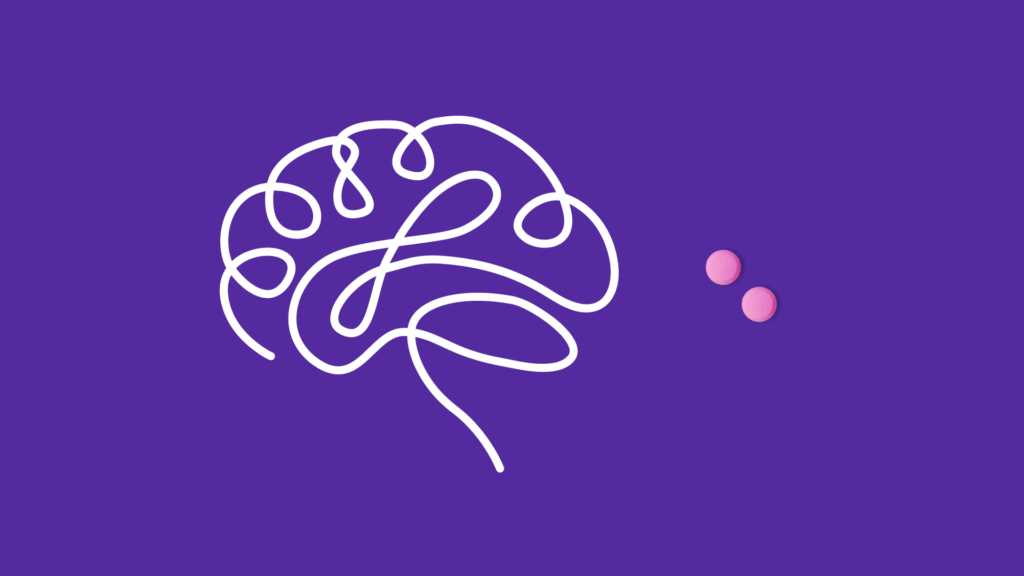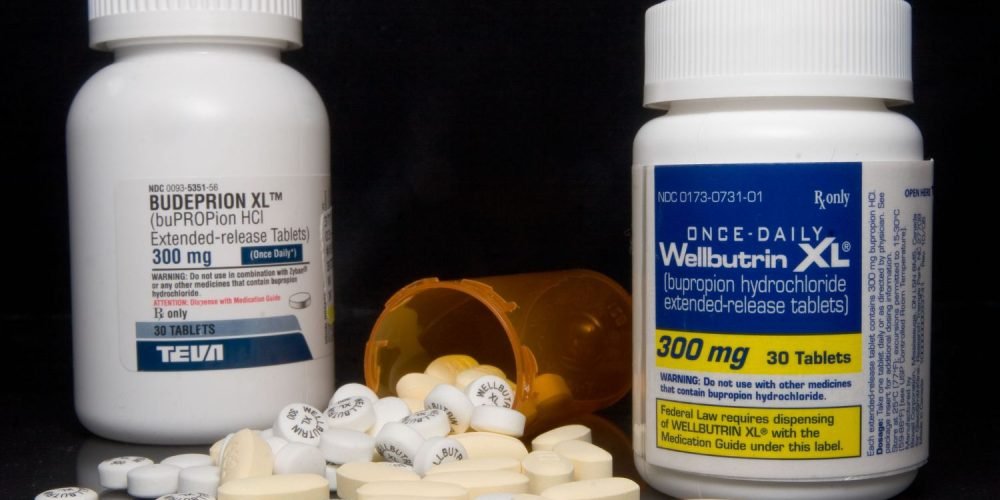Attention Deficit Hyperactivity Disorder (ADHD) is a complex condition that affects focus, behavior, and emotional regulation. While stimulant medications like methylphenidate and amphetamines are commonly prescribed, they may not be suitable for everyone. Enter bupropion, a non-stimulant medication traditionally used to treat depression and aid smoking cessation, which is gaining recognition for its potential in managing ADHD symptoms.
In this comprehensive guide, we’ll explore how bupropion ADHD use works, its benefits and drawbacks, and why it might be a suitable option for patients seeking alternatives to conventional ADHD treatments. Whether you’re a caregiver researching options or an individual navigating ADHD management, this guide will provide valuable insights into how bupropion could fit into your treatment plan.
What Is Bupropion and How Does It Work?
Bupropion is a prescription medication primarily approved for treating depression and aiding in smoking cessation. It belongs to a class of drugs known as norepinephrine-dopamine reuptake inhibitors (NDRIs), which work by increasing the availability of norepinephrine and dopamine in the brain—two neurotransmitters crucial for mood regulation, focus, and motivation.
In the context of bupropion ADHD use, this mechanism is particularly relevant. ADHD is linked to imbalances in these same neurotransmitters, and bupropion’s ability to modulate their levels may help improve attention, reduce impulsivity, and enhance executive functioning. While it is not a first-line treatment for ADHD, bupropion offers a promising alternative for individuals who cannot tolerate stimulants or require an additional layer of symptom management.
Understanding how bupropion works helps clarify why it is increasingly considered a viable option for ADHD, even though it is prescribed off-label for this condition.
Bupropion ADHD Use: An Overview of Its Off-Label Benefits
Although bupropion is not officially approved for treating ADHD, its off-label use has gained traction as an effective alternative for managing symptoms of this condition. Unlike traditional stimulant medications, which are often the first choice for ADHD treatment, bupropion works differently by targeting norepinephrine and dopamine reuptake. This makes it particularly beneficial for individuals who cannot tolerate stimulants due to side effects or medical contraindications.
One of the key advantages of bupropion ADHD use is its dual impact on co-occurring conditions. Many individuals with ADHD also experience depression or anxiety, and bupropion’s antidepressant properties can address these overlapping challenges. Additionally, it carries a lower risk of abuse compared to stimulant medications, making it a safer option for some patients.
While not suitable for everyone, bupropion offers a promising solution for ADHD patients seeking a non-stimulant approach to symptom management. Its growing off-label use reflects its potential to improve focus, reduce impulsivity, and enhance overall quality of life.

Comparing Bupropion to Traditional ADHD Medications
Here’s a table comparing bupropion to traditional stimulant medications commonly used for ADHD:
| Aspect | Bupropion | Traditional ADHD Medications |
| Type | Non-stimulant (NDRI) | Stimulants (e.g., methylphenidate, amphetamines) |
| Mechanism of Action | Increases norepinephrine and dopamine levels indirectly | Directly increases dopamine and norepinephrine levels |
| FDA Approval for ADHD | Off-label use | FDA-approved for ADHD |
| Primary Uses | Depression, smoking cessation, off-label for ADHD | ADHD management |
| Efficacy | Moderate efficacy for ADHD symptoms | High efficacy for ADHD symptoms |
| Risk of Abuse | Low | Higher, due to stimulant properties |
| Side Effects | Insomnia, dry mouth, headache, potential seizures | Appetite suppression, insomnia, increased heart rate |
| Impact on Co-occurring Conditions | Effective for depression and anxiety | Limited effect on depression or anxiety |
| Dosage Flexibility | Typically taken once or twice daily | Often requires multiple doses per day |
| Suitability for Patients | Patients who cannot tolerate stimulants or have comorbid depression | Patients who need rapid symptom relief |
This comparison highlights the unique benefits and limitations of bupropion relative to traditional stimulant medications, helping patients and caregivers make informed decisions about ADHD treatment options.
Who Can Benefit from Bupropion for ADHD?
Bupropion ADHD treatment may not be the first-line option for everyone, but it offers significant benefits for certain groups of patients. Here’s a look at who might find this medication particularly useful:
- Individuals with Stimulant Intolerance
Some people experience severe side effects from traditional stimulant medications, such as heightened anxiety, insomnia, or appetite suppression. Bupropion, being a non-stimulant, provides a gentler alternative. - Patients with Co-occurring Depression or Anxiety
ADHD often overlaps with mood disorders like depression and anxiety. Bupropion’s antidepressant properties make it an effective option for managing both ADHD and these coexisting conditions simultaneously. - Adults Seeking Non-Stimulant Options
Adults with ADHD who prefer to avoid stimulants due to the risk of dependence or personal preference may benefit from bupropion’s non-stimulant mechanism of action. - Individuals with a History of Substance Abuse
Stimulant medications carry a higher potential for misuse or abuse. Bupropion, with its lower abuse potential, is a safer choice for individuals with a history of substance abuse. - Patients Needing Long-Term Management
Since bupropion does not carry the same risks of tolerance development as stimulants, it may be a more sustainable option for long-term ADHD treatment.
Bupropion is not suitable for everyone, and its use requires careful evaluation by a healthcare provider. Those who fall into the above categories, however, may find it a valuable addition to their ADHD treatment plan.
Read Also : Clonidine ADHD: How It Works and What You Need to Know
The Science Behind Bupropion ADHD’s Effectiveness in Treatment
Bupropion ADHD ‘s effectiveness in managing symptoms lies in its unique action on the brain’s neurochemical systems. Unlike traditional stimulant medications, which directly increase dopamine and norepinephrine levels, bupropion works as a norepinephrine-dopamine reuptake inhibitor (NDRI). This means it prevents the reabsorption of these neurotransmitters, ensuring they remain active in the brain for longer periods.
ADHD is characterized by deficits in dopamine and norepinephrine signaling, which play crucial roles in attention, motivation, and impulse control. By enhancing the availability of these neurotransmitters, bupropion ADHD treatment can improve focus, reduce impulsivity, and support better executive function.
Studies suggest that bupropion is particularly effective for individuals with mild to moderate ADHD symptoms and those who also experience mood disorders like depression or anxiety. Its non-stimulant nature makes it a viable alternative for patients who cannot tolerate stimulant medications.
While more research is needed to fully understand bupropion’s role in ADHD management, its ability to address the core neurochemical imbalances associated with the condition highlights its potential as an off-label treatment option.

Potential Side Effects of Bupropion ADHD Use
While bupropion ADHD treatment can be effective for managing symptoms, it is essential to be aware of potential side effects. Like any medication, bupropion can affect individuals differently, and some may experience mild to severe side effects. Below are the most commonly reported side effects:
- Insomnia
Bupropion may cause difficulty sleeping, especially when taken later in the day. Adjusting the timing of doses can help mitigate this issue. - Dry Mouth
A frequent side effect, dry mouth can be managed by staying hydrated and using sugar-free lozenges or gum. - Headaches
Some users report headaches during the initial weeks of treatment. These often subside as the body adjusts to the medication. - Increased Anxiety or Restlessness
While bupropion can help with depression, it may also heighten anxiety or create feelings of restlessness in some individuals. - Nausea and Digestive Issues
Mild nausea or stomach upset is possible, particularly when starting the medication. Taking it with food can reduce these effects. - Elevated Heart Rate and Blood Pressure
Bupropion can increase heart rate or blood pressure in some patients, necessitating regular monitoring, especially for those with pre-existing cardiovascular conditions. - Seizures (Rare but Serious)
Though rare, bupropion carries a small risk of seizures, especially at higher doses or in individuals with a seizure history. Careful dose regulation minimizes this risk. - Mood Changes
In some cases, bupropion may cause mood swings, irritability, or worsening of depression. Immediate consultation with a doctor is advised if such symptoms occur.
Read Also : Nootropics for ADHD: 9 Benefits and 9 Risks.
Being informed about these potential side effects can help patients and caregivers weigh the benefits and risks of bupropion ADHD use. Always consult with a healthcare provider to ensure the medication is safe and appropriate for your specific needs.
Consulting Your Doctor About Bupropion ADHD Use
If you’re considering bupropion ADHD treatment as an option, having an informed and open conversation with your doctor is essential. Here’s how to approach the discussion and what topics to cover:
- Share Your Medical History
Provide a comprehensive overview of your medical history, including any past or present conditions like seizures, heart issues, or mental health disorders. This helps your doctor determine if bupropion is safe for you. - Discuss Current Medications
List all medications and supplements you are currently taking. Some drugs may interact with bupropion, leading to increased side effects or reduced effectiveness. - Explain Your ADHD Symptoms
Clearly describe your ADHD symptoms, including how they impact your daily life. Highlight specific challenges like focus issues, impulsivity, or emotional dysregulation to help your doctor tailor your treatment plan. - Address Co-occurring Conditions
If you also experience depression, anxiety, or other mental health concerns, mention them. Bupropion’s dual benefits for ADHD and mood disorders make it a valuable option in such cases. - Ask About Risks and Side Effects
Discuss the potential side effects of bupropion ADHD use, such as insomnia, anxiety, or changes in appetite. Understanding these risks ensures you’re prepared for any adjustments in treatment. - Clarify Dosage and Monitoring
Ask your doctor about the starting dosage, how it might be adjusted over time, and how frequently your progress will be monitored. Regular follow-ups are essential to evaluate the medication’s effectiveness. - Explore Alternative Options
Inquire about other ADHD treatments, including stimulants and non-stimulants, to ensure that bupropion is the best fit for your needs. - Set Treatment Goals
Work with your doctor to set realistic goals for managing ADHD symptoms with bupropion. This helps measure progress and guides any necessary changes in your treatment plan.
By preparing for this conversation, you can make an informed decision about incorporating bupropion ADHD into your ADHD management strategy. Your doctor’s guidance will ensure the medication is both safe and effective for your individual circumstances.
Do you have any comments about bupropion ADHD?


